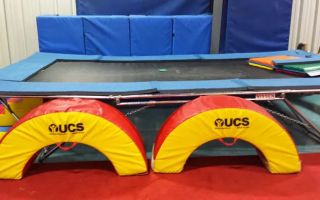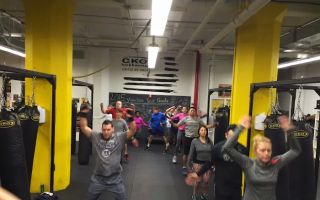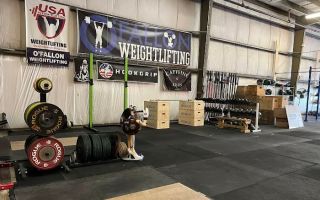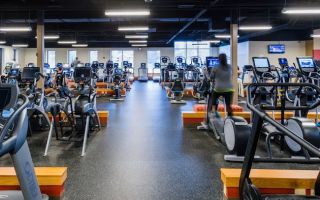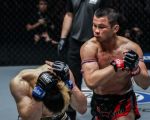Muay Thai workouts are intense, demanding, and highly effective for building strength, stamina, and endurance. However, the intensity of these sessions can also take a toll on your body, especially if you're not allowing proper recovery. Whether you're a seasoned fighter or just starting out, knowing how to recover after a Muay Thai workout is crucial for maximizing your performance and preventing injuries. In this article, we'll explore essential recovery strategies that can help you bounce back faster and feel ready for your next session.
- 1. The Importance of Recovery After Muay Thai
- 2. Nutrition Tips for Effective Recovery
- 3. The Role of Rest and Sleep in Recovery
- 4. Active Recovery: A Smart Approach
- 5. Supplements to Aid in Muay Thai Recovery
1. The Importance of Recovery After Muay Thai
Muay Thai is a high-impact sport that works almost every muscle group in your body, which can lead to muscle fatigue, soreness, and inflammation. Proper recovery is essential to allow your muscles to repair, rebuild, and grow stronger. Without recovery, you risk overtraining, which can lead to injuries, burnout, and stagnation in your progress.
Recovery doesn't just help you feel better, it also boosts your performance in future workouts. By prioritizing rest and recovery, you can improve flexibility, strength, and overall conditioning, ensuring that you continue to make progress in your Muay Thai journey.

Sitan Gym Muay Thai
25-34 Steinway St, Astoria, NY 11103, USA
2. Nutrition Tips for Effective Recovery
Your body needs the right fuel to recover after an intense Muay Thai workout. Proper nutrition plays a vital role in muscle repair and energy replenishment. Here are some key nutritional strategies for recovery:
- Hydration: Drinking enough water after a workout is crucial to replace fluids lost through sweat. Dehydration can hinder your body's ability to recover and cause muscle cramps.
- Protein: Protein is essential for muscle repair. Include lean sources of protein such as chicken, fish, or plant-based options like tofu and legumes in your post-workout meal.
- Carbohydrates: Your body also needs carbohydrates to restore glycogen levels. Whole grains, fruits, and vegetables are great options to replenish energy stores.
- Healthy Fats: Healthy fats, like those found in avocados, nuts, and olive oil, help reduce inflammation and support overall recovery.
3. The Role of Rest and Sleep in Recovery
Rest and sleep are essential parts of the recovery process. Your body does much of its repair work while you're sleeping, as growth hormone levels rise and muscle repair occurs. Aim for 7-9 hours of quality sleep per night to allow your body to fully recover and reduce the risk of injuries.
In addition to sleep, it’s important to take rest days between intense Muay Thai workouts to give your muscles time to recover. On these rest days, focus on stretching, light walking, or yoga to keep your body active while avoiding excessive strain.

Sityodtong Muay Thai Academy
100 Broadway, Somerville, MA 02145, USA
4. Active Recovery: A Smart Approach
Active recovery refers to low-intensity exercises that help promote blood flow to muscles, aiding in the removal of metabolic waste products like lactic acid. Some effective active recovery activities include:
- Light Jogging or Walking: A brisk walk or light jog can stimulate circulation and help your muscles recover without overtaxing them.
- Swimming: Swimming is a great full-body exercise that is gentle on the joints while helping to increase blood flow.
- Stretching or Yoga: Gentle stretching or yoga can improve flexibility, reduce muscle tightness, and help alleviate soreness.
Active recovery can be particularly helpful when you’re experiencing soreness or stiffness from a Muay Thai session. It provides the benefits of movement without the intensity of a regular workout.
5. Supplements to Aid in Muay Thai Recovery
While a balanced diet should provide most of the nutrients you need, certain supplements can further support your recovery after Muay Thai workouts. Some popular options include:
- Branched-Chain Amino Acids (BCAAs): BCAAs help with muscle repair and reduce soreness after intense workouts. They can also promote muscle growth and reduce fatigue.
- Creatine: Creatine is well-known for improving muscle performance and strength, and it may also aid in recovery by reducing muscle damage after exercise.
- Magnesium: Magnesium can help relax muscles, reduce cramps, and improve sleep quality, all of which are crucial for recovery.
- Turmeric or Curcumin: These natural anti-inflammatory compounds can help reduce muscle soreness and inflammation after a Muay Thai workout.
When using supplements, always consult with a healthcare professional to ensure they are safe and appropriate for your individual needs.
Recovering properly after a Muay Thai workout will not only help you avoid injuries but will also make you a stronger and more resilient athlete. For more tips on improving your Muay Thai training, check out Humble Challenger for expert advice, recovery products, and Muay Thai essentials.




